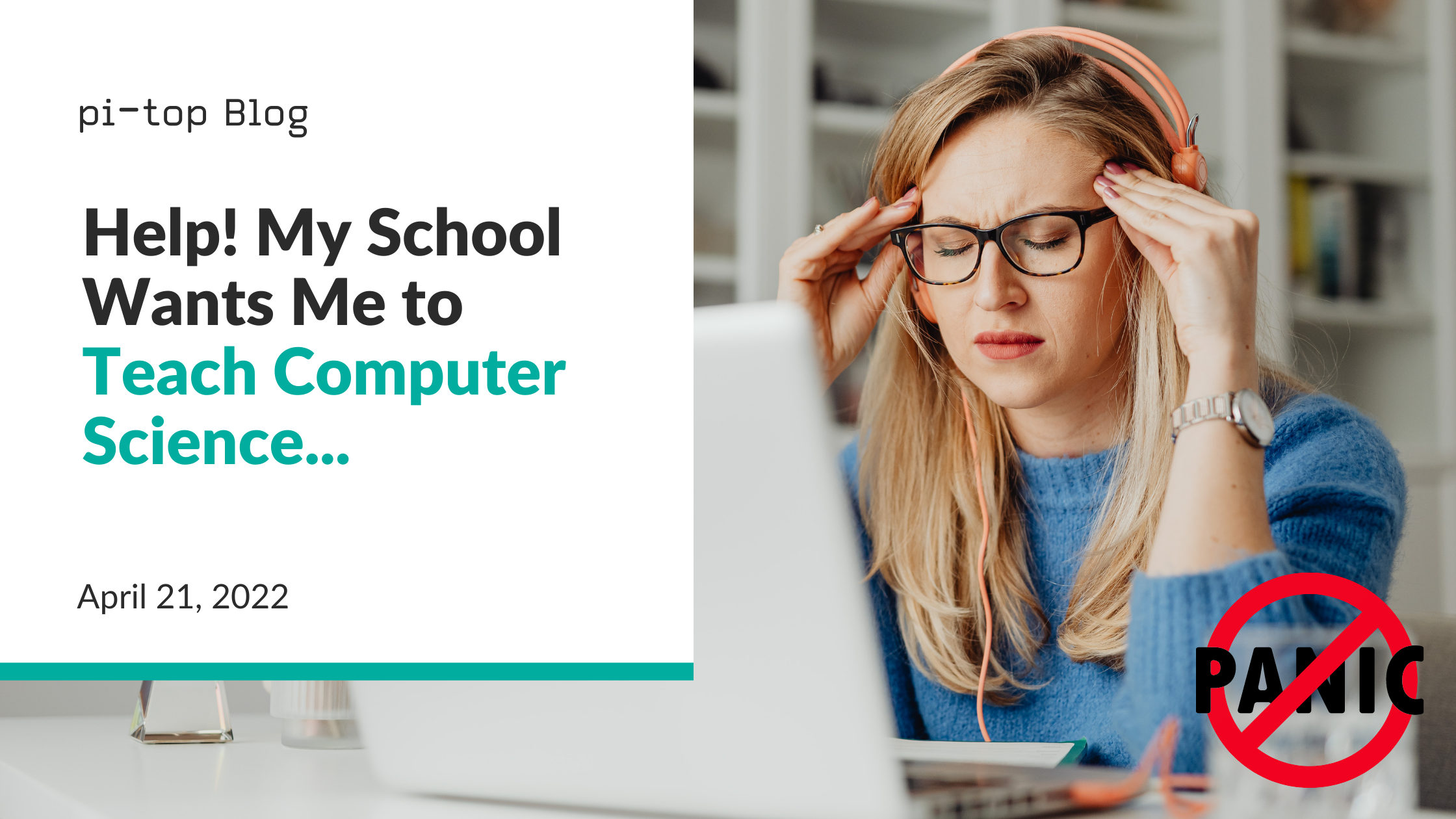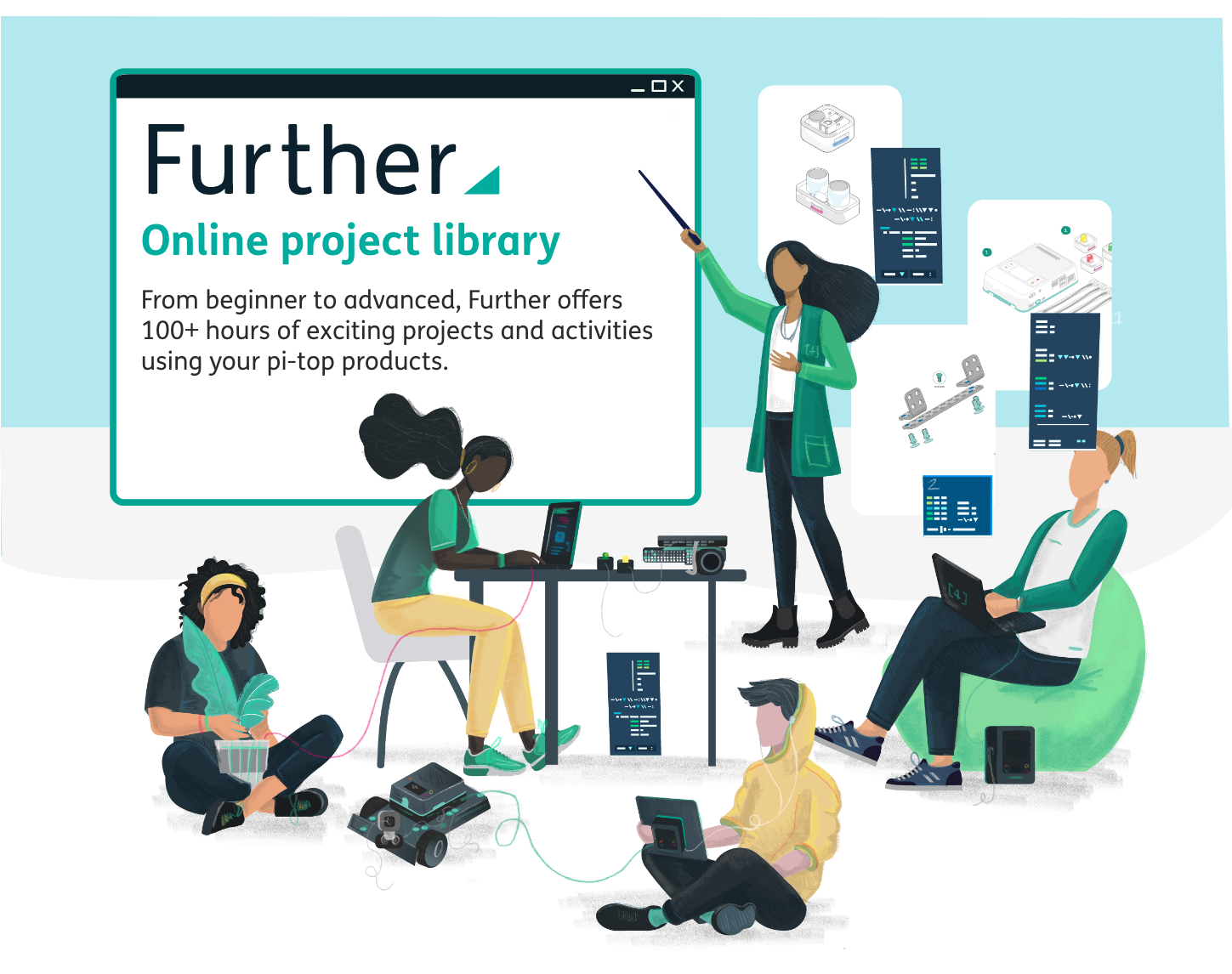Help! My school wants me to teach computer science…
We hear this cry for help a lot! Your school has decided to implement an elective computer science course or is setting up a Maker Space in the library, and enlists a current teacher (you) to lead the charge. Maybe you’re a Physics teacher, or a Biology teacher, or a Math teacher - it doesn’t matter, whatever your current role is, you’re now also a computer science teacher.
 So where do you start? Can you teach yourself the basics of computer science without a class of your own? pi-top makes teaching computer science easy and fun! We hold your hand, step by step, and provide you with all the tools necessary to take your students from beginner to advanced CS skills.
So where do you start? Can you teach yourself the basics of computer science without a class of your own? pi-top makes teaching computer science easy and fun! We hold your hand, step by step, and provide you with all the tools necessary to take your students from beginner to advanced CS skills.
But, perhaps you want to learn the basics and have a foundation of CS knowledge before you start teaching. There is a vast amount of information online built by and for different audiences. So where do you start?
Where Do I Start When Teaching Myself Computer Science?
When beginning your exploration into computer science it is helpful to become familiar with some CS vocabulary:
Programming is code that instructs a computer program on how to operate.
Computer Architecture is the design and data storage of computers.
Algorithms and Data Structure allow you to write fast code.
Operating Systems are the interface between those that use the computer and the computer hardware.
Computer Networking is the process of connecting two or more computers.
Databases are collections of structured information or data in a computer.
Languages and Compilers involve software that takes source code written at a high-level language and translates it to be understood by a computer.
Distributed Systems are when multiple software components that are on multiple computers run as a single system.
While you might already be feeling overwhelmed, don’t worry! While it is important to understand that the above vocabulary references elements of computer science, just like learning any other language, the terms will all begin to come together in your mind as you continue exploring the subject.
CS is often thought of as just coding and programming, but there is much more to it. By understanding the different pieces, you’ll learn how people use computer science to determine what problems can be solved by computers and how to execute the solution to those problems. Understanding this big picture will help you determine the area you want to focus on when you begin learning more about computer science.
Begin with Coding When Teaching Yourself Computer Science
When beginning to dive into computer science, it is easiest to start with coding. A coder knows how to break down a problem into instructions that the machine can understand in order to come up with a solution.
When learning to code you will need to learn a coding language such as (HTML), JavaScript, or Python. Once you are comfortable with your coding language of choice, you can test it out with fun projects like putting together a website or a simple game.
When you have mastered coding you can begin to work on programming. When programming you will use algorithms and data structure in order to code. This is sophisticated coding.
The grade level you teach along with your personal reasons for learning computer science will determine what you want to focus on learning next.
What are the Best Platforms to Use When Teaching Myself Computer Science?
The best way to learn something is by doing. This holds true for learning computer science. There are many courses and boot camps online both free and for purchase. Some of the best that we recommend for beginners are those offered by code.org, code academy, or Hack Reactor.
The best thing to do is just start! Learning this new skill will give you an idea of the experience your students will have when they begin their own computer science learning.
We’re here to help!
Of course, we know that you’re extremely busy teaching your other classes and may not have time to take a coding class or learn more about the different coding languages. That’s ok! At pi-top, we have over 150 hours of complete coding courses, as well as individual projects and activities that are perfect for maker spaces, and short-term computer science lessons.
In addition, we provide detailed teacher guides that walk you through each lesson or activity, step-by-step, giving you every tool you need to teach computer science, even if you have no experience in the subject.
For even more information about how pi-top can help you to learn computer science, click here.

